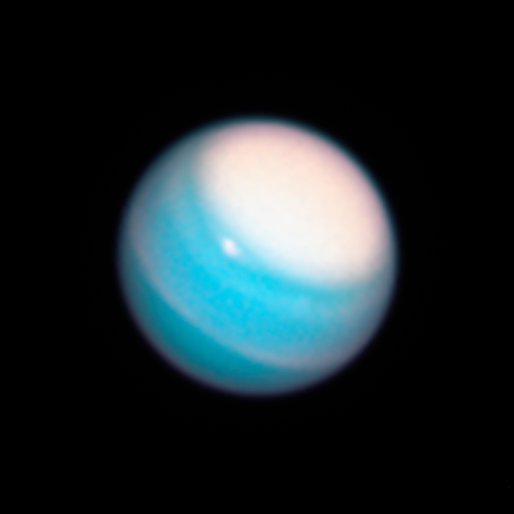

This is the seventh planet from the Sun.
Uranus is not visible to the naked eye in the night sky. As a result, it was the first planet to be discovered using a telescope in 1781
The rotation of Uranus is in the opposite direction to all other planets in our solar system, except Saturn. It takes 17 hours and 14 minutes to complete a single rotation. It's orbit of the sun takes 84 Earth Years.
The atmosphere of Uranus is made up of water, ammonia and methane ice crystals.
Although it is classed as a gas giant, due to its hydrogen and helium upper layer, Uranus has an icy mantle around a rock core. This means it is often referred to as an ice giant.
The temperature in Uranus's atmosphere can drop lower than on any other planet, all the way down to -224 ℃.
The rings of Uranus are less obvious than those of Saturn and are made up of smaller bits of material. They weren't discovered until 1977.
Uranus has 27 known moons; they are all named after characters from William Shakespeare and Alexander Pope. The largest is Titania which is roughly half the size of Earth's moon.

Uranus has only been visited by one spacecraft.
This was a fly-by done by the Voyager 2 probe in 1986 as it navigated through the outer solar system.
It took Voyager 2 about eight years and five months to reach Uranus, although its route did involve fly-bys of Jupiter and Saturn first.
There are currently five different proposals for future missions to Uranus, but none have reached a point of having launch dates.
Use the information above to answer these questions:
To check your answers please see the answer sheet. This should only be used after attempting all questions.